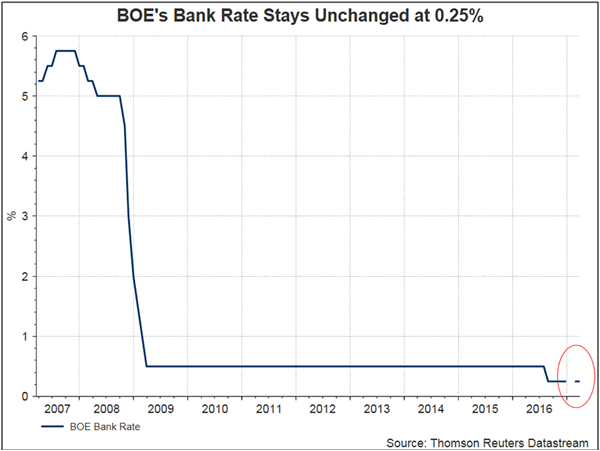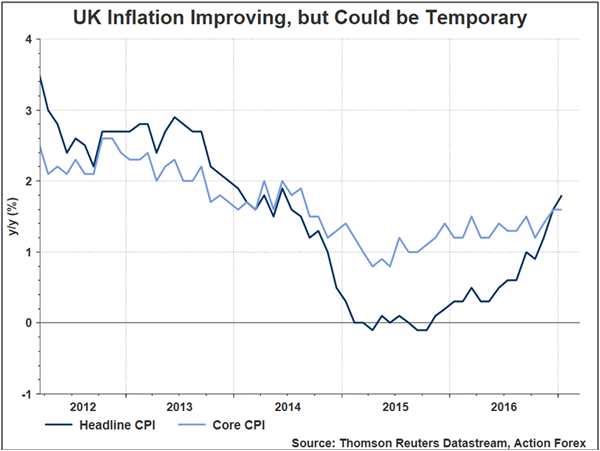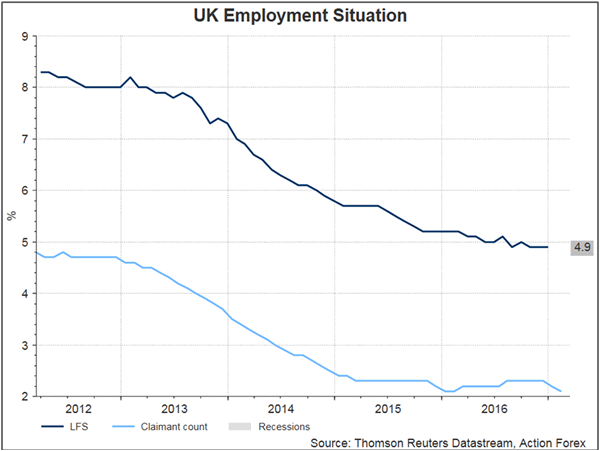To our, and the market’s, surprise, BOE’s Kristin Forbes voted in favor of a 25 bps rate hike in March. While this had not altered the decision of keeping the Bank rate unchanged at 0.25%, the overall message sent to the public has now become more hawkish. The members voted unanimously to leave the government bond purchases at 435B pound and corporate bond purchases at up to 10B pound. Adding to the rising speculations of tightening is the minutes, which suggested that some of those who voted for unchanged policy believed ‘it would take relatively little further upside news on the prospects for activity or inflation for them to consider that a more immediate reduction in policy support might be warranted’. GBPUSD jumped to a 2-week high of 1.2376 after the announcement, before settling at 1.2358, up +0.55%.
Leaving the MPC in June, Forbes has been the most hawkish member of the committee. Yet, she had not called for a rate hike until the March meeting. As she explained in an article written for Daily Telegraph, Forbes noted that ‘although wage growth has been disappointing, this likely reflects temporary caution around Brexit,’. She added that the ‘softening’ on consumer spending ‘should only be moderate, due to support from resilient consumer confidence, solid house prices, low unemployment, and easy access to cheap credit’. While there are ‘risks consumers could pull back more sharply — but these are still just risks’.
It is not only the hawkishness of Forbes that sent tightening speculations higher. Indeed, the minutes signaled that other members have turned more confident over the economic outlook. For the eight members who voted to keep the policy rate unchanged, they cited subdued pay growth, slacks in the labour market and the squeeze in households’ real income growth as the factors for maintaining the status quo. They also noted the uncertainty over post-Brexit trading arrangements would pose ‘downside risk to the activity outlook’. However, they added that ‘with inflation rising sharply, and only mixed evidence on slowing activity domestically, some members noted that it would take relatively little further upside news on the prospects for activity or inflation for them to consider that a more immediate reduction in policy support might be warranted’. This is definitely a more hawkish move, as the February minutes noted that ‘for some members, the risks around the trade-off embodied in the central projection meant they had moved a little closer to those limits’.
Although the members appeared more hawkish than previously, we expect that BOE would remain on hold throughout the year. First, Forbes would leave the MPC at the end of June. Her successor could be less hawkish, rebalancing the committee towards a less bullish team. Second, the expected economic growth slowdown could be felt more deeply, offsetting the strong inflation which could prove temporary.



